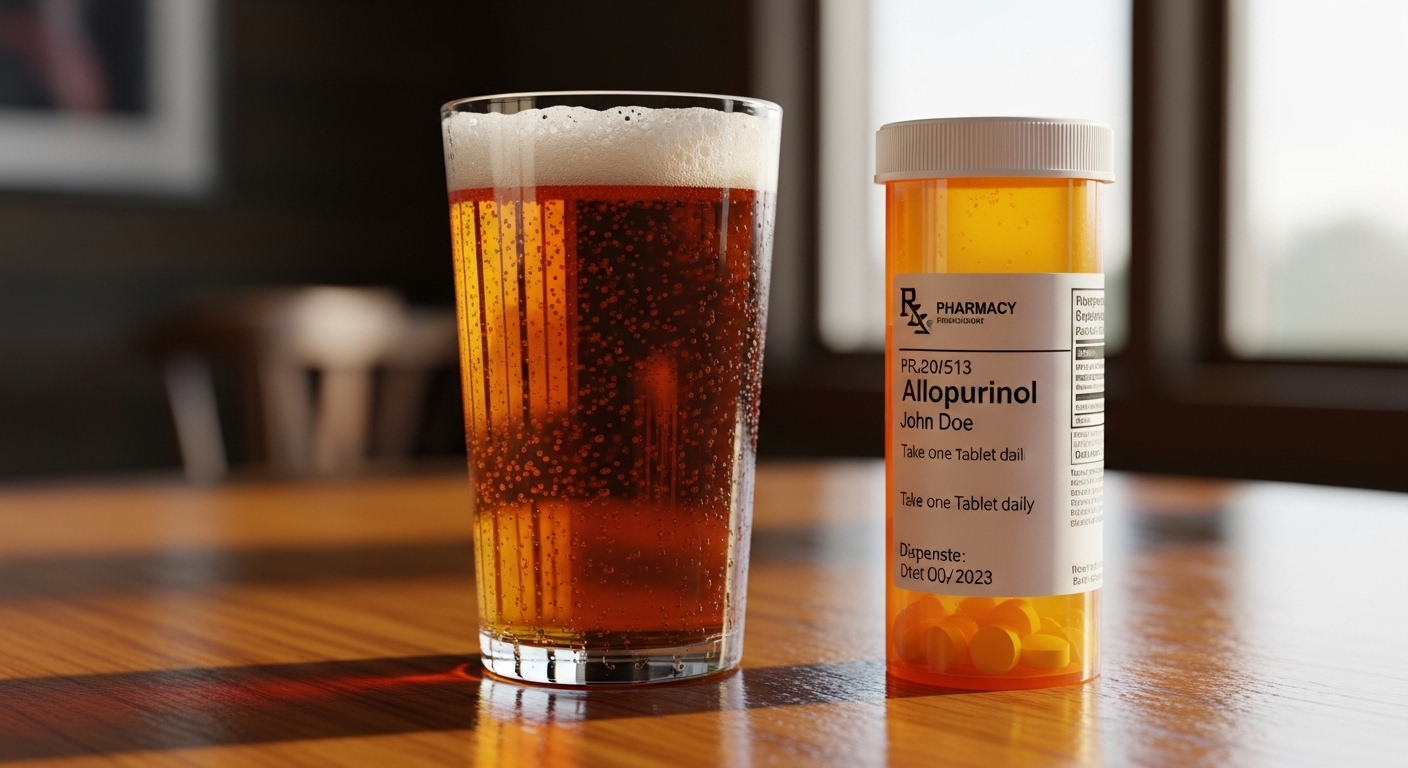Dr. Kumar’s Take
This study makes it clear: alcohol is not just a casual trigger for gout, it is a significant one. Beer, wine, and liquor all increase the risk of an attack within 24 hours of drinking. Even moderate intake raised flare risk in patients with gout. If you suffer from recurrent attacks, reducing or eliminating alcohol may be one of the most powerful preventive steps you can take.
Key Takeaways:
✔ All types of alcohol—beer, wine, and liquor—increased gout attack risk.
✔ Even moderate drinking (1–2 servings) raised the likelihood of a flare.
✔ Risk climbed higher with greater alcohol intake, showing a clear dose-response relationship.
✔ Medications like allopurinol helped blunt alcohol’s impact, but did not fully prevent it.
Actionable Tip
If you live with gout, limit alcohol intake of any kind. Even “safe” amounts of wine, beer, or spirits can tip the balance toward a painful flare. Choose non-alcoholic beverages, and if you do drink, keep it rare and minimal—especially if you’ve had recent attacks.
Study Summary
Researchers followed 724 people with gout across the United States in an internet-based study. Over one year, they compared each participant’s alcohol intake on days before a gout attack versus days without attacks. They found a consistent and significant increase in flare risk tied to alcohol consumption of any type, including moderate amounts.
Study Design
- Design: Internet-based case-crossover study
- Participants: 724 individuals with confirmed gout
- Follow-up: 1 year, with real-time reporting of alcohol intake
- Comparisons: Each person served as their own control, reducing background confounders
- Analysis: Looked at quantity and type of alcohol consumed in the 24 hours before gout attacks versus control days
Results
- Dose-response effect:
- 1–2 drinks → 36% higher risk of attack
- 2–4 drinks → 51% higher risk
- More than 8 drinks → 3x risk of an attack
- Type of alcohol:
- Wine: >1–2 servings increased risk 2.38x
- Beer: >2–4 servings increased risk 1.75x
- Liquor: >2–4 servings increased risk 1.67x
- Modifiers:
- High-purine foods + alcohol = much greater risk
- Allopurinol blunted alcohol’s effects, but risk was still present
- Colchicine helped somewhat, while NSAIDs did not change alcohol’s effect
Why Alcohol Triggers Gout Flares
Alcohol raises uric acid through multiple mechanisms:
- Increased urate production from ethanol metabolism
- Reduced urate excretion due to lactic acidosis after drinking
- Beer adds extra purines (like guanosine) on top of ethanol’s effects
These pathways combine to raise uric acid levels quickly, setting the stage for crystal formation and a gout flare.
Related Studies and Research
Diet and Gout Risk: NEJM Study – Landmark study evaluating dietary patterns and their effect on gout risk.
Coffee, Uric Acid, and Gout Risk – Investigates how coffee consumption influences uric acid levels and gout risk.
Glorification of Gout in Literature – Explores cultural views of gout through history and literature.
Podcast: How to Make Gout Disappear from Your Life – A comprehensive look at modern and ancient gout science—and how to beat it.
Frequently Asked Questions
Can any type of alcohol be considered safe for gout?
No. This study showed that beer, wine, and liquor all increased the risk of gout flares, even in moderate amounts.
Does taking allopurinol protect me from alcohol-triggered attacks?
Allopurinol reduced some of alcohol’s effects but did not eliminate the risk. Limiting alcohol remains the best strategy.
Why does wine trigger attacks if it was not linked to incident gout?
Lifestyle differences among wine drinkers may have masked the effect in earlier studies. This real-time study showed wine does indeed trigger recurrent flares.
How quickly does alcohol affect gout?
Attacks were more likely within 24 hours of alcohol consumption, showing how quickly uric acid metabolism can shift.
Bottom Line
For people with gout, all alcohol types carry risk. Even “just a glass of wine” can raise the chance of a painful flare. While medications help, the most reliable prevention is cutting back or eliminating alcohol altogether.


